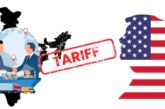Dr. Arvind Kumar*
People of Afghanistan are reeling under woeful plight in socio-economic, political, and security terms since the hasty withdrawal of US-led Allied Forces from the Afghan soil and the rapid manner of the takeover of Afghanistan by the Taliban. The Taliban had been cautioned by international agencies and experts to avoid seizure of power in Kabul at gunpoint because doing so could invite ire from the donors and the resultant outcome could make the Taliban face the brunt of economic isolation, thus depriving Afghanistan of critical foreign exchange. Viewed in a broad perspective, this cautionary signal was not a mere empty threat because the developments obtained in the aftermath of the Taliban’s victory spree over one province after the other in August 2021 led the US, EU,and donor agencies to resort to precautionary measures in terms of halting of development aid, freezing Afghan assets abroad and imposition of sanctions. Thereafter, the resulting economic crisis added to the already woeful plight of the people of Afghanistan and pushed more than half of the Afghan population toward starvation.
Fragile Economy
The Taliban’s inability to ensure a semblance of political stability in areas under its control and its failure to integrate disgruntled groups like ISIS-K into the governance process of Afghanistan have seemingly proved instrumental in reinforcing the apprehensions of the major donors with regard to the incapability of the Taliban in delivering good governance. Therefore, there has been let up either in the ban on inflows of aid or relaxation in sanctions. The cumulative impact of these and other related developments has led to pushing already fragile Afghan economy into further deep crisis. Quick diminution in international grant support, denial of access to offshore assets and disruption to fiscal linkages have contributed to the emergence of daunting economic challenges for the ruling dispensation in Kabul. The resultant is discernible in terms of continued contraction of economy, increasing poverty and macroeconomic instability.
Even prior to the Taliban taking over of reins of power in Kabul in August 2021, the Afghan economy was already in shambles in the wake of a slow economic growth rate that reflected weak confidence as a sequel to the fast deteriorating security situation. Moreover, drought conditions adversely affected agricultural production and the outbreak of the COVID-19 pandemic witnessed high infection rates, and only less than five percent of the population fully vaccinated, etc., were such development that led to a sharp contraction of output in multiple sectors. Besides, the sudden halt in donor aid and the sharp decline in government expenditure along with disruptions in trade and lull in the banking sector altogether had a telling effect on the Afghan economy.
According to World Bank, even the first half of 2021 had witnessed a gradual acceleration in inflation in the Afghan economy. There had been a spike of 12 percent in energy prices and as a sequel to the advancement of the Taliban from a province after a province in the first half of 2021, the prices of basic household goods, including fuel and food, had registered a phenomenal hike. The continued advancement of the Taliban had enabled it to assert its control over border posts and key transit hubs and that led to disruption of supply chains causing further inflation. And the post-Taliban period has been characterized by the depreciation of Afghan currency, hoarding, and disruptions in international trade.
World Bank data for 2021 for Afghanistan makes it discernible that throughout 2021, government revenues continued to fall short of budgeted levels, demonstrating disproportionately optimistic revenue targets, and from mid-July onwards there was deterioration in revenue performance. Besides, deteriorating security conditions also led to faltering in budget execution. There is a paucity of authentic information with regard financial performance of the Interim Taliban government, and the Interim Taliban government is said to have resumed centralized customs collections.

The financial sector in Afghanistan has been in the doldrums. High volumes of cash withdrawals from commercial banks and intensified auctions of the US dollar led to massive erosion of liquidity of both commercial banks and the Central bank in the lead-up to the Taliban takeover. Banks that had ceased operating immediately following the Taliban takeover, now are said to be reopening; nevertheless, these banks are confronted with major handicaps in processing international transactions owing to the restrictions of the Central bank on capital outflows and unwillingness on the part of offshore banks to engage in transactions in the wake of sanctions. According to World Bank, ‘constrained ability’ to process international transactions has undermined formal sector international trade because of firms’ inability to transfer funds overseas to pay for imports.
According to World Bank, the economic and development outlook for Afghanistan in the coming years is bleak. This surmise is based on the fact that sharp diminution in international aid is causing a decline in basic health and education services. Besides, a sudden breakdown in public sector activity is prone to adversely impact the entire economy because the service and construction sectors account for 58 percent of Afghan GDP. Furthermore, an increasing fall in grants in tandem with a loss of access to foreign exchange is likely to result in a balance of payment crisis. Depreciation in Afghan currency, inflation, and shortages of critical household goods together entail the potential of adversely impacting a substantial portion of the Afghan population, also entailing the possibility of this segment of the population moving below the poverty line along with facing enhanced food insecurity.
The urgency for Humanitarian Aid
People of Afghanistan are currently faced with enormous problems and they urgently need international humanitarian assistance on a priority basis. According to broad estimates, by March 2022, over 22 million Afghans are expected to face acute food insecurity, and about 680, 000 people displaced by conflict in 2021 require suitable shelter in the ensuing winter. Assistance is also needed for 1.2 million ‘undocumented returnees as well as for about 29, 000 Afghans affected by national disasters during 2021. According to the UN’s 2022 Global Humanitarian Overview, an estimated 24.4 million people in Afghanistan will require humanitarian assistance in the coming days.
Undoubtedly, the UN Security Council‘s recently adopted resolution 2615 on Afghanistan seeking $4.5 billion is seen as a breakthrough for humanitarian aid to Afghanistan. The resolution envisages that “humanitarian assistance and other activities that support basic human needs in Afghanistan”, will not constitute a violation of a prior Security Council resolution that prohibits transactions with and transfers to the Taliban. This resolution also provides a mechanism for adapting the Council’s sanctions regime which was established with important counter-terrorism objectives directly imposed on individuals, groups, undertakings, and entities associated with the Taliban in Afghanistan by the Security Council vide its resolution 1988 of 17 January 2011.
Way Forward
Keeping in view the miserable plight of more than half of the population of Afghanistan, especially the plight of undernourished children, sincere implementation of the UN Security Council’s recent resolution is the need of the hour. Besides, the sanctions imposed by the US and other countries should be relaxed to allow humanitarian aid to reach the needy people without brooking any delay. However, some experts have opined that implementation of the provisions of the recent resolution of the UN Security Council will be a time-consuming process because of some legal issues involved as will be the case with the easing of US sanctions, and as such, these experts suggest that neighboring countries of South Asia and Central Asia should cooperate on extending emergency help to Afghanistan Undoubtedly, India has expressed its willingness to help Afghanistan; nonetheless, Pakistan is proving a stumbling block.
*Editor, Focus Global Reporter



